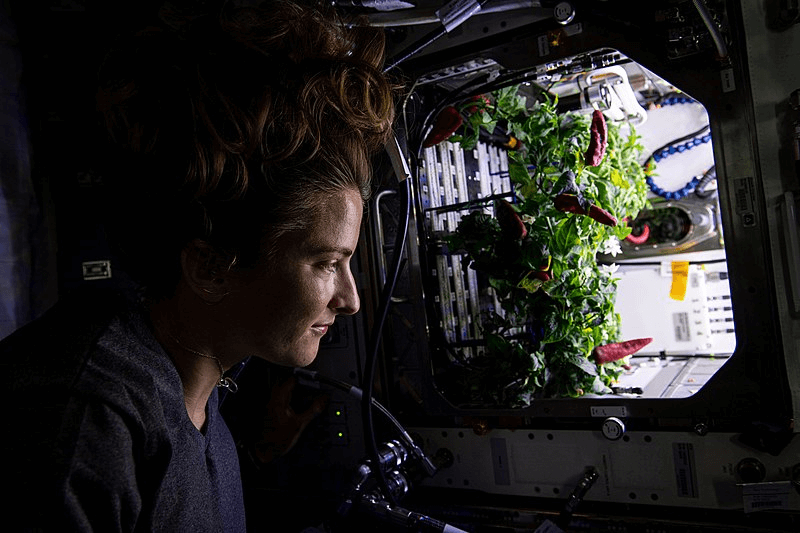“Happiness is bacon squares for breakfast,” proclaimed Apollo 8 crew member Jim Lovell while midway to the moon in 1968.
But venturing to Mars or beyond probably demands a completely different approach. Without a steady (and extremely costly) stream of supply shipments, in-space habitats and otherworldly outposts of the future will need to serve as highly engineered, self-contained ecosystems that grow satisfying and healthy food.
That’s what the Deep Space Food Challenge, launched in 2021, is all about. This year 11 U.S. teams and six international teams… built and demonstrated “kitchen-scale” prototypes of their high-tech agricultural inventions.
The most visually impressive presentation belonged to Interstellar Lab, based in Florida, which has developed a system that can grow plants, mushrooms and insects—each in its own small cube. “That’s a big deal,” says Nolux team member Andrés Narvaez of Interstellar Lab’s modular display. The compartmentalized growing cubes would allow astronaut farmers to individually control each cube’s ambient conditions. The team showcased massive mushrooms, leafy greens and black soldier fly larvae that “self-harvest” by tumbling down a ramp (a process that would need to be revised to work in microgravity), where they are collected and pulverized into a protein-rich powder.































